Saturday, 26 September 2009 13:17
 Mizzima News - Many observers, political activists and interested parties are wondering why the United States has finally decided to engage with Burma’s military regime. Obviously, Burma policy is part of United States foreign policy under President Obama’s new era of global engagement. However, whether Burma becomes a special case for the State Department, only time will tell.
Mizzima News - Many observers, political activists and interested parties are wondering why the United States has finally decided to engage with Burma’s military regime. Obviously, Burma policy is part of United States foreign policy under President Obama’s new era of global engagement. However, whether Burma becomes a special case for the State Department, only time will tell.“Burma’s political development is very complicated and the US government has taken this position with a hope of promoting stability,” recently speculated a Yunnan University researcher who does not wish to be named.
“Strengthening bilateral relations between the US and Myanmar [Burma] government more or less impacts ceasefire groups that live along the Sino-Burma border,” he continued. To date, ceasefire groups have enjoyed various favors and commercial prosperity in balancing relations between China and the Burmese military regime for two decades.
With the Burmese military’s recent offensives against ceasefire groups along the Chinese border, Senior General Than Shwe urgently needs US government backing. He needs to realize the fruition of the seven-step roadmap to democracy for his own personal security – consolidating the military rank and file and washing his hands of an alleged pro-China sentiment. For better or worse, he has to get out from under the shadow of China to deal with major ceasefire groups. He was not able to aggressively deal with ceasefire groups as long as he was getting diplomatic, economic and political support from China. He needs the US government on his side.
What does the Burmese military regime expect from the US government? With the current administration dispensing with the idealism of the Bush era, the junta hopes for an easing of sanctions, the reconvening of normal relations with few strings attached and tacit endorsement of its roadmap.
For its part, President Obama’s administration feels tired of a policy consisting merely of pressure, preferring to instead deal with perceived political reality. Unconvinced of the Burmese opposition’s strategy to instill change, the US government is perhaps seeking to preempt growing Chinese influence in the region over the course of the next decade.
The US seems to believe that better communication with the regime will profit all parties, including the NLD. The US administration needs to find a political space for Daw Aung San Suu Kyi under any new policy. The President and Secretary of State do realize that her moral authority cannot be marginalized while creating a new US policy – a fact that greatly complicates the equation.
The US shift did not occur without first considering the views of ASEAN and Burmese internal dynamics. Maybe ten years from now the opposition will take part in a full process of democratization, but for now the US seems to buy what the Senior General is offering – and something is deemed better than nothing.





















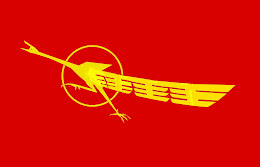





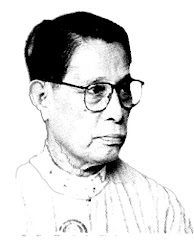


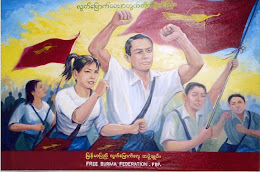





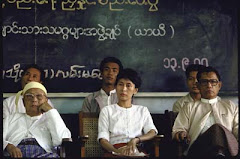

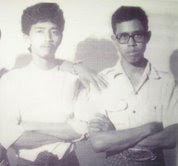

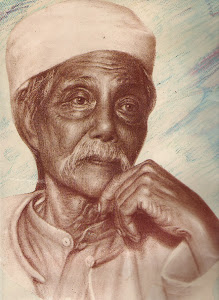
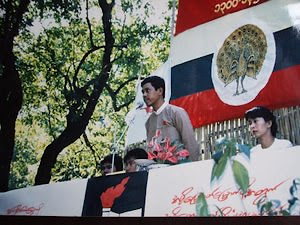
2 comments :
THE OBAMA ADMINSTRATION was quick to see how unhelpful its State Department and Myanmar dissident groups in US could be when dealing Myanmar cause. The Administration also noticed that US had been slow to appreciate how useful the junta would have been if approached wisely. Hence the US decided to explore “the first reliable account on the Junta concerning recent clashes and extended precarious situations in Myanmar”. US hoped for the best and sincere outcome from engaging directly with the junta, rarely bypassing the State Department which usually filed five star reports to the White House lauding the opposition dissident groups and armed rebel militia. Normally these starry-eyed reports were recycled uncritically to members of the previous adminstration’s inner circle. It was not uncommon to see some US diplomats in Myanmar returned to Washington to convey the “atrocities” committed by the junta, mostly exergerated, after the clashes and uprising incidents.
Myanmar would like to elaborate its long history of civil war and Junta’s intention towards disciplined democracy led by a “Strong Central Government”, comparing to Amercan civil war in 1861.
From wikipedia :
“In the US, the political disagreements of the early 1800s were varied, but many were really about what the Constitution meant. Some states wanted more power to decide rules on their own, while others favored more national control. Since the first group mostly favored slavery and the second mostly opposed it, the two issues of states' rights and slavery were connected. In 1861, after decades of disagreement over the issues of states' rights and slavery, 11 southern states declared they would secede from the United States and form a new country with its own government, the Confederate States of America. Their state militias began seizing federal military posts in the South. This began the American Civil War. The remaining United States, which were often referred to as the "Union" during the war".
Meantime, US would certainly not missed the coming Chinese military parade show off.
From Media: "A military parade on October 1 marking 60 years since the founding of communist China will showcase a modern, professional army wielding advanced new weapons that is increasingly capable of projecting its power overseas. The goal of the heavily armed procession that will rumble through the heart of Beijing is to show the world - particularly the United States - that the global and regional security calculus is changing, experts say.
Defence Minister Liang Guanglie last week told state-run media that China's weaponry now rivalled that of Western countries. China will pull back the curtain on that arsenal on Thursday, with a military spokesman vowing a range of new and '100 per cent China-made' weapons including missiles, fighter jets, high-tech radar and other support systems.
Richard Fisher, a senior fellow with the International Assessment and Strategy Center, says military watchers are expecting to see two new Dongfeng missiles that could trouble Pentagon policymakers. China is likely to show off an upgraded Dongfeng 31 intercontinental ballistic missile with a longer range capable of striking deep into the United States and possibly able to carry multiple nuclear warheads, Mr Fisher told AFP.
'This is a very troubling prospect when the Obama administration is rushing to cut down US warhead numbers to the 1,500 to 1,600 range,' he said".
So, would China let US to get a foot hold easily on Myanmar which is at its doorstep? It depends on the will of the “People of Myanmar”.
The theme of Obama is “change” so that he tries to change everything what George W. Bush did. He'd even changed to peace with criminal likes Ahmadi Nejad. So that this is not surprising he wants to change the policy on SPDC even though he still insists that there is no change. Most of the politician never says the truth.
It seems to me that Daw Su is also thinking about changing. In fact, all you guys have to do is change yourself.
My point of view is that Than Shwe will be tap dancing 24 hours a day and we‘ll all go down the drain finally.
Post a Comment